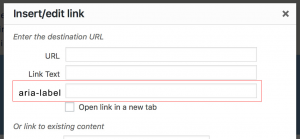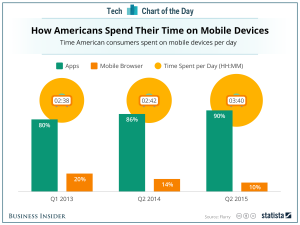7 Tips for Small Business Marketing

If you want to get your small business off the ground, you know how important it is to attract new customers. Without any new customers, your business would have no way of expanding and growing. And one of the quickest ways you can broaden your customer base is by harnessing the power of marketing.
But small business marketing isn’t something that just happens overnight. A successful strategy needs lots of planning, research, and effort — none of which can be done without the right information. To help you get started on your small business marketing plan, we’ve put together this handy starter guide of 7 tips for marketing a small business.
1. Email Marketing
Email is a great way to market your small business. It’s quick, easy, and inexpensive to set up a newsletter or email campaign. Plus, you can use it to showcase your products and services and bring people back to your website. Email marketing also allows you to target specific groups of customers based on your analytics data, which can help to improve your ROI.
Moreover, email marketing is a great way to get customers’ attention and keep them engaged with your brand. Here are some things to consider when using email marketing as part of your small business strategy:
- Use a newsletter to build relationships with customers.
- Send coupons and discounts using email marketing.
- Use email marketing to promote special events.
- Make people feel like a part of your brand by sending them exclusive content.
- Offer freebies or discounts in exchange for an email address.
- Give people more than one way to opt-out of receiving your emails.
- Always follow up with buyers.
No matter what, make sure your email marketing efforts align closely with your business goals. If you don’t have a way to measure how effective your campaign is, then there’s no point in sending out emails.
2. Increase Brand Awareness
Increasing brand awareness is one of the most essential steps in building a successful small business. You can do this by creating an effective social media strategy and establishing yourself as a thought leader in your industry. Building relationships with influencers will help to spread the word about your brand online and offline through word-of-mouth marketing campaigns.
Having a strong brand can also be appealing to potential customers. Customers are more likely to buy from a brand they trust, so developing a strong reputation is crucial for building your business.
Customer service is another important aspect of building a great brand. You need to provide customers with the best customer experience possible to win them over. This can mean offering quick responses on social media, answering questions and inquiries quickly via email support, or even providing phone support for customers who prefer it.
3. Develop a Detailed Marketing Plan
If you want to be successful at marketing your business, you should have a detailed plan in place to help you track and reach your goals. This plan should include the steps you need to take to achieve your business goals as well as a timeline for when each step will be completed.
A good marketing strategy would include things like:
- Identifying your target audience.
- Creating a persona for each persona in your target audience.
- Determining what types of content will resonate with your audience.
- Creating an online presence on social media platforms and other websites.
- Creating a marketing calendar to keep track of when you will post content, send out emails, and run paid advertisements using tools like Facebook ads.
These are all important components of a marketing strategy, and you must take the time to create one if you want your business to succeed.
4. Focus on Content Marketing
Content marketing does not have to be expensive or time-consuming. You can write articles for your website or blog, create videos and share them on social media, or shoot photos of your products that you can post on Instagram or Pinterest. The more content you create, the better your chances of attracting new customers through search engines like Google and Bing.
As part of any good inbound marketing campaign, you should focus on creating high-quality content that is relevant to your audience. It’s one of the most effective ways to build trust with potential customers and establish yourself as an expert in your industry.
Always be on the lookout for new and innovative ways to incorporate content marketing into your business marketing strategy. For example, you could try:
- SMS marketing to reach people on their mobile phones.
- Podcasts and webinars to reach a wider audience and boost your brand awareness.
- Twitter chats, Facebook Live, Instagram Stories or Snapchat to connect with customers in real-time.
The sky is the limit when it comes to content marketing. Don’t be afraid to try new things.
5. Search Engine Optimization (SEO)
SEO is an incredibly important part of any marketing strategy, but it can be overwhelming for a small business owner who doesn’t have much experience in this area. Consider working with an SEO expert who can help you create an effective plan for improving your search engine ranking over time.
You can use SEO to:
- Increase your website traffic.
- Improve your organic search rankings.
- Drive more leads to your business.
In addition, local SEO can help attract more foot traffic into your store or office by targeting people who are close by. You can also leverage your existing customers to generate more business by providing them with the tools they need to share your content with their friends. Use tools like Google My Business to quickly and easily create an online presence in your local area.
6. Video Marketing
Video marketing can be done in many ways, from a simple explainer video that describes what your company does to a full-blown production with actors and special effects. It depends on how much you want to spend and where you’re hoping to get traffic from.
When you’re creating videos for your business, they should be high quality so that they look professional and attract viewers. You should also have a consistent tone throughout each video so that viewers know what to expect from each one. You can upload videos on multiple social media platforms, including Facebook, Instagram, or YouTube, making it easy for people around the world to view them.
A few of the best practices for video marketing that you should follow include:
- Create a script for your video and make sure it’s short, sweet, and to the point.
- Keep a consistent tone throughout each video so that viewers know what to expect from each one.
- Don’t cram too much information into one video as it will be difficult for viewers to follow along.
- Make sure that each video has a call-to-action so that viewers know what you want them to do after watching it.
Video marketing is an effective way to reach a large audience and build your brand. It’s also an important part of any digital marketing strategy, especially if you want to reach people who live outside of your area. As long as you follow the best practices for video marketing, it should be easy to create videos that people love watching.
7. Website Design
Website design is important because it determines how your business is represented online. Your website should be easy to navigate, and the information on it should be easy to find. You should also make sure that your site is mobile-friendly so that people can see it on a phone or tablet without having to zoom in or scroll around.
You can improve your website by ensuring all the links work and adding content like blog posts and videos. You should also add a contact form so that people can get in touch with you if they want more information about your services or products.
It will also be necessary to incorporate SEO into your website so that it appears higher in search engine results. You can do this by including keywords in your content and using them in the titles of your blog posts. It would also be helpful to add social media buttons to your site so that people who like what they see can share it with their friends and followers online.
A strong website is essential for any business, but it’s especially important for sellers of services and products. Even if you don’t have a lot of money to spend on your website, there are plenty of ways to ensure it looks professional and attractive.
Tracking Website Visitors
Using analytics tools like Google Analytics can help you understand who is visiting your site and what they want to see. It can also help you identify areas where you can improve, such as making your site more mobile-friendly or improving the quality of your content.
You can also incorporate tracking into your advertising campaigns. For example, if you use Google Ads or Google Adwords to promote your website, you can use Google Analytics to track how many people click on your ad. That can help you determine if the campaign is working and how much money it’s costing you.
Conclusion
Marketing a small business is a full-time job, and it’s up to you to define your strategy. You won’t get it right on the first try; it takes time to get to know your customers and figure out where they spend their time.
But by following these guidelines and incorporating them into your company’s mission statement, you can begin defining your own small business marketing strategy from the start and get ahead of your competition. And if you’re having a hard time, consider reaching out to a small business marketing agency like Scorpion for some help.
Featured Image Credit: Photo by SevenStorm JUHASZIMRUS; Pexels; Thank you!
The post 7 Tips for Small Business Marketing appeared first on ReadWrite.
(18)










